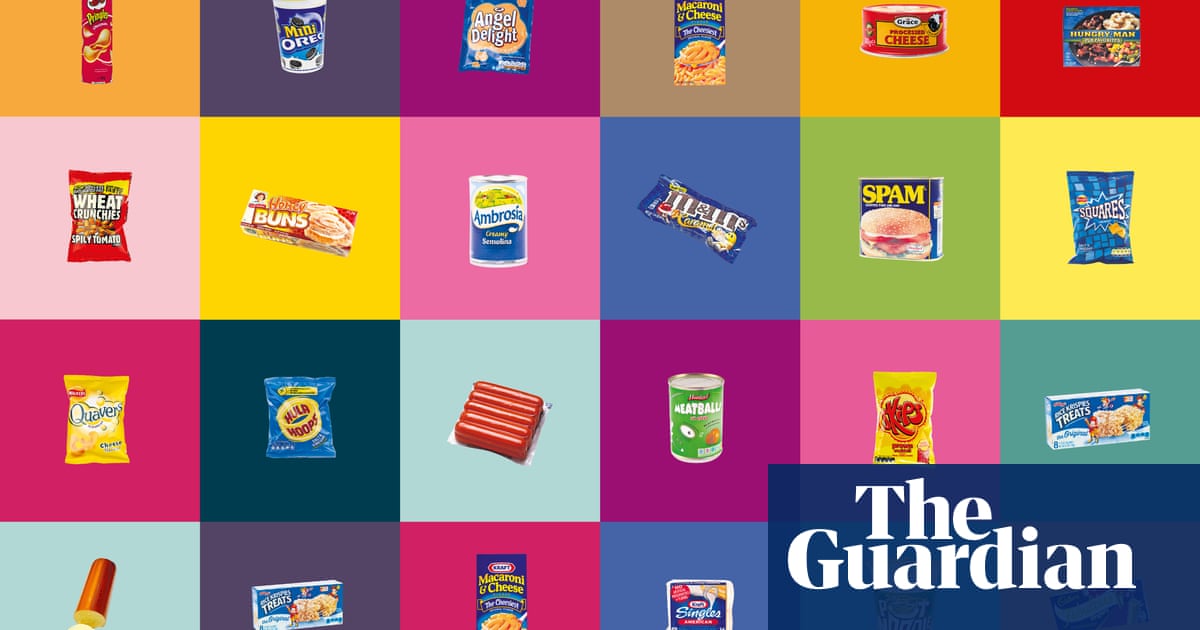What characterises ultra-processed foods is that they are so altered that it can be hard to recognise the underlying ingredients. These are concoctions of concoctions, engineered from ingredients that are already highly refined, such as cheap vegetable oils, flours, whey proteins and sugars, which are then whipped up into something more appetising with the help of industrial additives such as emulsifiers.
Ultra-processed foods (or UPF) now account for more than half of all the calories eaten in the UK and US, and other countries are fast catching up. UPFs are now simply part of the flavour of modern life. These foods are convenient, affordable, highly profitable, strongly flavoured, aggressively marketed – and on sale in supermarkets everywhere. The foods themselves may be familiar, yet the term “ultra-processed” is less so.
It’s savoury snacks and sweet baked goods. It’s chicken nuggets or vegan hotdogs, as the case may be. It’s the doughnut you buy when you are being indulgent, and the premium protein bar you eat at the gym for a quick energy boost. It’s the long-life almond milk in your coffee and the Diet Coke you drink in the afternoon.
Over the past decade, large-scale studies from France, Brazil, the US and Spain have suggested that high consumption of UPFs is associated with higher rates of obesity. When eaten in large amounts (and it’s hard to eat them any other way) they have also been linked to a whole host of conditions, from depression to asthma to heart disease to gastrointestinal disorders. In 2018, a study from France – following more than 100,000 adults – found that a 10% increase in the proportion of UPFs in someone’s diet led to a higher overall cancer risk. “Ultra-processed” has emerged as the most persuasive new metric for measuring what has gone wrong with modern food.
When Hall started to read through the scientific literature on ultra-processed foods, he noticed that all of the damning evidence against them took the form of correlation rather than absolute proof. Like most studies on the harmful effects of particular foods, these studies fell under the umbrella of epidemiology: the study of patterns of health across populations. Hall – and he is not alone here – finds such studies less than convincing. Correlation is not causation, as the saying goes.
At the end of 2018, Hall and his colleagues became the first scientists to test – in randomised controlled conditions – whether diets high in ultra-processed foods could actually cause overeating and weight gain. Hall’s study provided evidence that an ultra-processed diet – with its soft textures and strong flavours – really does cause over-eating and weight gain, regardless of the sugar content. Over just two weeks, the subjects gained an average of 1kg. This is a far more dramatic result than you would expect to see over such a short space of time (especially since the volunteers rated both types of food as equally pleasant).
After Hall’s study was published in July 2019, it was impossible to dismiss Monteiro’s proposition that the rise of UPFs increases the risk of obesity.
Which is also why on a LCHF diet highly processed foods are to be avoided.
See How ultra-processed food took over your shopping basket
The long read: It’s cheap, attractive and convenient, and we eat it every day – it’s difficult not to. But is ultra-processed food making us ill and driving the global obesity crisis?

